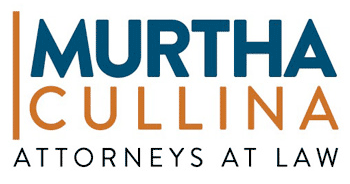TANGO Partners Perspective – April 2024
Navigating Conflicts of Interest
By Julia Boisvert

What does a board of directors do when a director has a potential conflict of interest? Can a tax-exempt organization contract with a company owned by one of its officers or directors? Can a tax-exempt organization pay a director for services performed outside his or her role as a director?
Conflicts of interest can pose tricky questions for tax-exempt organizations and it is important to ensure that they are handled appropriately to protect both the tax-exempt organization and the conflicted individuals.
What is a conflict of interest?
Conflict of interest concerns arise from fundamental principles relating to the operation of tax-exempt organizations. First, a tax-exempt organization must be operated exclusively for an exempt purpose and not for the benefit of any private interests. Second, the officers and directors serving on the board of directors of a tax-exempt organization owe certain fiduciary duties to the organization. These generally include the obligation to act in good faith, with the care of an ordinarily prudent person in similar circumstances, and in the best interests of the organization.
A conflict of interest generally arises when an individual’s obligation to further the exempt purposes of the organization is at odds with the individual’s own personal interests. This creates a conflict with an officer or director’s fiduciary duties and also the obligations of a tax-exempt organization to avoid any private benefit or inurement.
Conflicts of interest are specifically defined in an organization’s conflict of interest policy. Policies may define conflicts of interest narrowly to focus on financial interests (in line with the IRS requirements) or they may take a broader approach to conflicts of interest and also address potential “optics” issues that the organization wishes to avoid. Tax-exempt organizations should think carefully about their desired approach to conflicts in drafting their policies.
How are conflicts navigated?
It should be noted that there is nothing inherently wrong or unethical about a conflict of interest. What matters is how the individual and organization proceeds when they arise. The first obligation with respect to any potential conflict of interest is typically a duty of disclosure. If a director or officer believes they may have conflict of interest, as defined in the organization’s policy, the individual has a duty to disclose the potential conflict.
Once the potential conflict is disclosed, it becomes the responsibility of the board of directors (or other body as designated in the conflict of interest policy) to explore the facts and determine whether the disclosed interest might affect, or reasonably be thought to affect, the judgement or conduct of the director or officer. If there is no actual conflict, the individual has satisfied their duty to disclose and may continue their activities with respect to the organization.
If it is ultimately determined that no actual conflict exists, it will be necessary for the board of directors to determine how that conflict can be appropriately navigated. In some instances, a recusal from deliberation and voting may be appropriate. In other circumstances, it may be determined that it is necessary for the individual to cease the activities or resign from their role as director or officer. Other situations may warrant different actions. The appropriate action will depend on the nature and pervasiveness of the conflict and viewpoint of the board.
What are the risks of failing to address conflicts of interest?
Directors and officers who fail to disclose or appropriately handle their conflicts of interest could be considered to be in breach of their fiduciary duties or, if applicable, their contract. Depending on the nature of the issue, there could be a risk of personal liability.
Failure to act appropriately with respect to a conflict of interest also has the potential to result in an excess benefit transaction where the tax-exempt organization provides a benefit to an individual that exceeds the value of consideration received by the organization. In these situations, the IRS could impose intermediate sanctions which is a penalty on both the disqualified person receiving the benefit and on the managers of the tax-exempt organization.
Tips For Navigating Conflicts of Interest
With proper care, tax-exempt organizations and their officers and directors can navigate conflicts of interest appropriately. Going forward, here are a few tips to keep in mind:
- Educate your board of directors and officers on their fiduciary duties, conflicts of interest, and your organization’s conflict of interest policy.
- Make sure the minutes of the organization reflect any disclosures relating to conflicts of interest, how the board handles the conflict, and all recusals related to the conflict.
- When possible, attempt to address any potential conflicts of interest proactively before they become an actual conflict of interest.
- Contact counsel as needed to address particularly nuanced or questionable situations.
CONTACT OUR
TANGO PARTNER
